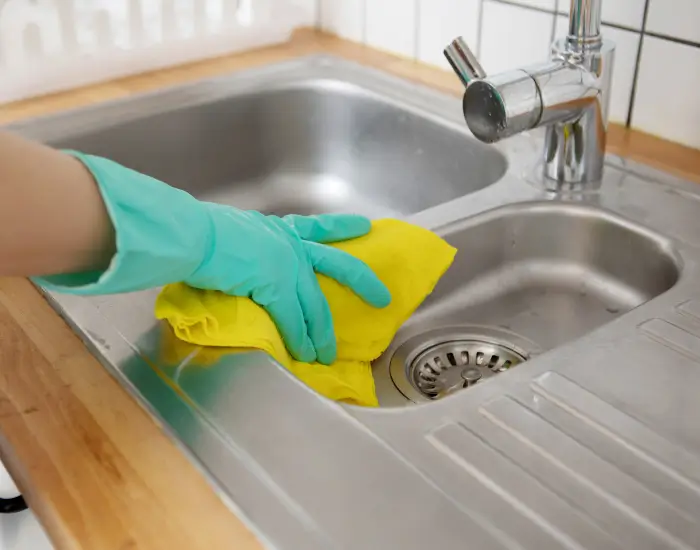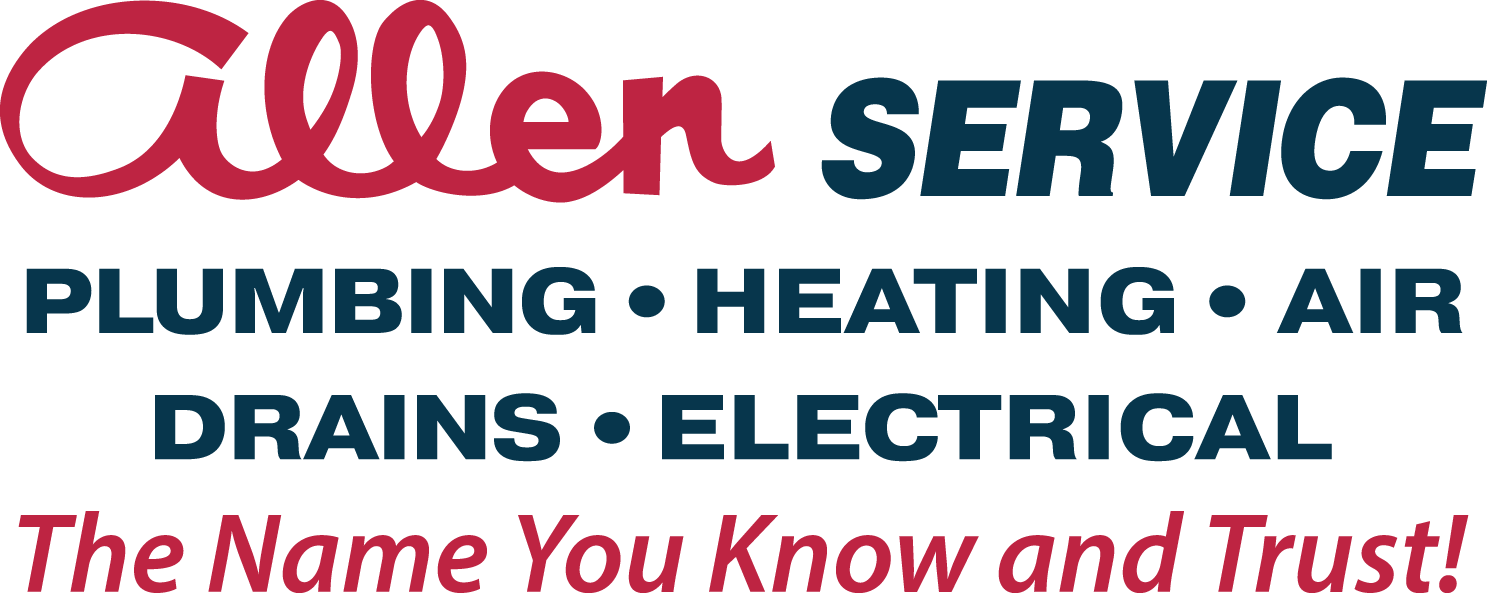
At Allen Service, we understand that a fresh-smelling kitchen makes a big difference in home comfort. Garbage disposals are handy tools, but without regular cleaning, they can start to smell and lose efficiency. Food particles and grease buildup can quickly lead to foul odors. Fortunately, maintaining a clean and odor-free garbage disposal is easy with just a few household items. Here’s a step-by-step guide on how to clean and deodorize your garbage disposal effectively.
Step 1 – Disconnect the Power for Safety
Safety is important. Before starting, disconnect the disposal from its power source to prevent it from accidentally turning on while you clean. Unplug it if it’s connected to an outlet under the sink or turn off the breaker if it’s hardwired. Taking this simple step ensures you can clean without worry.
Step 2 – Remove Large Debris by Hand
Once the power is off, carefully remove any visible debris. Use tongs or pliers to pull out any large food particles lodged in the disposal. Avoid using your bare hands, as the blades can be sharp. Removing larger pieces first reduces the risk of clogs and helps the rest of the cleaning process go smoothly.
Step 3 – Use Ice Cubes and Salt to Dislodge Grime
Using ice cubes and coarse salt is an effective way to scrub the disposal’s blades and walls. Place a handful of ice cubes in the disposal, followed by a tablespoon of salt. The ice and salt work together to dislodge grime and debris, leaving the disposal cleaner.
How to Do This Step
- Add ice cubes and salt to the disposal.
- Reconnect the power, turn on the cold water, and run the disposal.
- Let the disposal grind the ice and salt for a few moments, which helps break up buildup.
This step scrubs away grime and reduces odors, leaving the inside of your disposal refreshed.
Step 4 – Deodorize with Baking Soda and Vinegar
For deeper cleaning and odor removal, use baking soda and vinegar. Pour half a cup of baking soda into the disposal, then add a cup of vinegar. This mixture will create a fizzing reaction that breaks down grime and neutralizes odors. Let it sit for about 10 minutes to dissolve any remaining buildup.
Why Baking Soda and Vinegar Work
Baking soda and vinegar are natural deodorizers. Baking soda neutralizes odors, while vinegar’s acidity helps to break down particles stuck inside the disposal. After the fizzing stops, rinse the disposal with cold water to flush away any residue.
Step 5 – Flush with Hot Water
After cleaning with baking soda and vinegar, rinse the disposal with hot water. Boiling water can help dissolve grease and flush away any remaining grime. Run hot water through the disposal for about 30 seconds to ensure it’s fully rinsed. This final rinse removes any remaining particles and leaves the disposal clean.
Benefits of Hot Water Flushing
Hot water helps to:
- Dissolve and wash away grease that can build up over time.
- Rinse away any residue from the baking soda and vinegar.
Flushing with hot water regularly can also reduce the risk of clogs, keeping your disposal working efficiently.
Step 6 – Freshen with Lemon for a Pleasant Scent
Finish up by freshening your disposal with lemon. Cut a lemon into quarters, drop the pieces into the disposal, and run the disposal with cold water. The lemon naturally has a deodorizing effect, leaving a clean and pleasant scent in your kitchen.
How Lemon Helps
Lemon’s acidity helps dissolve mild buildup, and its natural oils coat the blades and walls, providing a fresh, long-lasting scent. For an extra burst of freshness, add a few drops of lemon or orange essential oil.
Tips for Maintaining a Clean and Fresh-Smelling Disposal
Following these steps monthly will keep your garbage disposal in great shape and help prevent odors. Here are a few additional tips to ensure your disposal stays fresh and functional:
- Run cold water while grinding food to help flush particles down.
- Avoid fibrous foods like celery or corn husks, which can wrap around the blades and cause clogs.
- Grind small amounts of ice cubes weekly to reduce buildup.
Summary
By following these six simple steps, you can keep your garbage disposal clean and odor-free, improving its performance and extending its lifespan. And if you need assistance, the Allen Service team is here to help with expert maintenance and repair services.
When to Call a Professional
If you’ve tried these steps and still notice odors or hear unusual noises, it might be time to call a professional. At Allen Service, we specialize in garbage disposal maintenance and repair. We’re here to diagnose any issues and keep your disposal working properly. A professional inspection can identify problems like worn-out blades or drain blockages that DIY cleaning can’t fix. Serving Fort Collins, Colorado, and the surrounding areas, we’re dedicated to helping homeowners keep their kitchens clean and comfortable.
Why Choose Allen Service?
At Allen Service, we have been providing expert plumbing, heating, and air conditioning services in Fort Collins and Northern Colorado for over 60 years. Our team is dedicated to quality, reliability, and complete customer satisfaction. We’re committed to providing high-quality maintenance services, including garbage disposal cleaning and repair. For more information on garbage disposal maintenance, visit our garbage disposal repair page.
